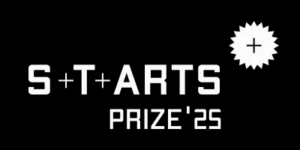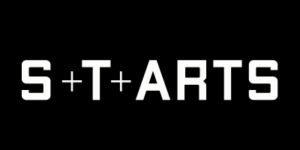Nomination
On March 20, 2018, headlines announced the death of Sudan, the last male northern white rhinoceros (Ceratotherium simum cottoni). We briefly mourned a subspecies lost to the human desire for the imagined life-enhancing properties of its horn, comforted that it might be brought back using biotechnology, albeit gestated by a different subspecies. But would humans protect a resurrected rhino, having decimated an entire species? And would this new rhino be real?
The Substitute explores a paradox: our preoccupation with creating new life forms, while neglecting existing ones. A northern white rhino is digitally brought back to life, informed by developments in the human creation of artificial intelligence (AI). Based on research from AI lab DeepMind, the rhino performs as an artificial agent, an autonomous entity that learns from its environment. A life-size projection, 5m wide, shows the artificial rhino roaming in a virtual world, becoming more “real” as it comprehends the limits of the space. As the artificial rhino habituates to its space, its form and sound toggle from pixelation to lifelike—reminding the viewer that this living, breathing rhino, coming to life without its natural context, is entirely artificial. The experimental data is played on a second screen, showing the path and development of the agent’s navigational cells. The rhino’s behaviors and sounds are adapted from rare research footage of the last herd, provided by Dr. Richard Policht. Is this rhino, coming to life divorced from its natural context, a better substitute for the real?
Credits
Alexandra Daisy Ginsberg (Dr. Alexandra Daisy Ginsberg, Johanna Just, Ness Lafoy, Ioana Man, Ana Maria Nicolaescu). The Mill (Art Director: Adam Parry; Executive Producer: Jarrad Vladich; Senior Producer: Kelly Woodward; Animation Supervisor: Paul Tempelman; Animators: Kieran Jordan, Maxime Cronier, Kevin O’Sullivan, and James Hickey; Unreal Developers: Roberto Costas, Mark Dooney, Haydn Roff, and Ed Thomas; Model and Rig: Andreas Graiche and Daniel Weiss). Sound: Chris Timpson, Aurelia Soundworks. Special thanks to Andrea Banino/DeepMind and Dr. Richard Policht. Commissioned by the Cooper Hewitt, Smithsonian Design Museum, and Cube design museum, 2019.
Alexandra Daisy Ginsberg (GB) is an artist examining our fraught relationships with nature and technology. Through subjects as diverse as artificial intelligence, synthetic biology, and conservation, she investigates the human impulse to “better” the world. Daisy is lead author of Synthetic Aesthetics: Investigating Synthetic Biology’s Designs on Nature (MIT Press, 2014), and in 2017 completed Better, her PhD, at the Royal College of Art, interrogating how powerful dreams of “better” futures shape what we design. Daisy exhibits internationally, including at MoMA, the Museum of Contemporary Art, Tokyo, the Centre Pompidou, and the Royal Academy, and her work is in museum and private collections.



